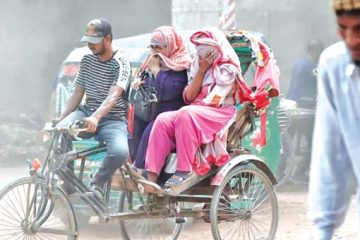Opinion
Afsan Chowdhury
THE relentless reality of social media has begun to influence news making at several levels. Three social media elements are making these pressures so strong. (a) It reaches consumers almost instantly and in no way can professional media compete with that. (b) Content creators can mix and offer audio-visuals that cost little to produce because of phone video making and editing. (c) It has a regular and loyal fan base that circulates the content more rapidly than is possible for professional media to do so.
Response to challenges
THE result is the rise of a challenge that professional media cannot respond to adequately. Paper media has already tuned out and become dependent on government advertisements or supported by a special interest group. The problem has hit those papers more which are trying to align themselves along market lines.
One way they have responded is to open online sections apart from the e-paper versions that all have. However, problems have remained. Media outlets are national in nature and all are concentrated in Dhaka. Since the owners and editors see Dhaka as the state capital, hence national, the news is very limited in scope as well.
That means focus on the formal part of governance which is represented by the Dhaka-connected elite. Meanwhile, the rise of the peri-urban and rural societies linked through digital communication has been extensive. And this has diluted the ‘national’ platform whether in news making or other sectors.
The competition is, therefore, between interest in ‘national’ affairs and ‘local’ issues in almost every space. The growth of content-generating capacity outside Dhaka/national has also coincided with a decline in news matters far away that is now Dhaka. On top of that, this competition is counterproductive as everyone has access to ‘national’ issues leading to low exclusivity.
When this is the scenario, almost everyone is hurrying to cover the same news. Thus, all mainstream media as opposed to social media are copying each other. That has also reduced the audience niche for each outlet as the news is being shared informally on the same topic on social media. To the consumer, the brand value is depleted when all report the same topic the way and resemble each other inevitably.
Forced to diversify?
BEFORE the digital era, media outlets had several products but each had their own identity. Now, that is not the case any more. It is not the content that matters but the form as well. So, a media construct has several outlets and they basically carry the same news. From paper to social media videos, it is the same news as far as the consumer is concerned. This is being done by all the major media outlets as a result of which media content is not increasing but duplication is.
Had this problem been of one or two outlets, it would have been a manageable challenge, perhaps; but it affects all players. As a result, the same content is so common that in multiple forms it is making them repeat contents. So, the audience is looking for alternatives such as social media and it is free. Thus, branding now has lower value as the content is universal.
So, the traffic to independent content creators is rising and they are now competing with corporate media outlets. The result is greater accessing of social media content where the variety is greater.
Many professional media outlets are, thus, tempted to try an easy way out since all it needs is a copy paster and some editing top produce ‘content’. But that approach also has its limitations. Just about everyone can do it; so, the quantum of unique content has rapidly declined, making presence no longer an effective marketing approach. Hence, the dependence on ‘views’ are increasing, hoping that it will help to gain and retain consumers.
More views, less news?
NEWS as a product is becoming increasingly difficult to sell and even the term newspaper is threatening to become obsolete. One individual content creator is able to produce as much and as attractive as a corporate media body making such content-making being exclusive the biggest challenge. When everything is being known instantly, the concept of breaking news itself needs to be redone. The era of news first may be coming to an end, rapid or slowly.
Social media has, therefore, created a situation where people know what is happening but want to know what it means in terms of impact and analysis. That makes ‘views’ much more exclusive as content, hence more attractive.
A new model is clearly emerging where a series of products will be available catering to different audiences and influencing opinion will be far more algorithm based.
That makes views more attractive to consumers, hence more attractive to advertisers. If people are getting news from social media, they will turn to professionals to learn what that news means. The mixed news and views media is already facing that challenge which is likely to grow more in the future.
Afsan Chowdhury is a researcher and journalist.







